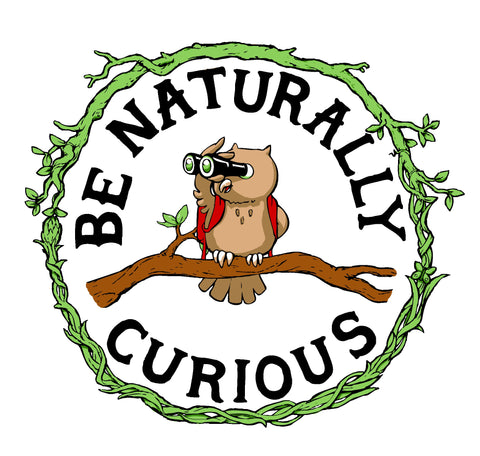What's in a Mini-Course?
Each Be Naturally Curious mini-course contains multiple varied activities to teach a cool scientific concept. Continue reading to learn about the different types of activities.
Learn through stories!
While most teaching out there takes place in the form of lecture or video, we believe storytelling is a much more effective way of communicating information. Every one of our courses begins with an engaging story to capture kids’ imaginations. Every story includes original illustrations, to help kids visualize and distinguish between new ideas. To top it off, our stories often include short, interactive and movement-based activities, because we know how hard it can be for kids (and adults) to sit still and focus.
All of our stories are designed for parents or educators to read to kids. However kids may also love to read these on their own. Once kids have learned the basic concepts, it is time to reinforce them with the activities. To get a sense of the range of activities in each mini-course, continue reading below.
Learn through making and building!
While lectures and videos can go in one ear and out the other, modeling and creating with their hands are fantastic ways for kids to slow down and really focus on the concepts they are learning. All of our mini-courses contain a project that involves making something with one’s own hands. These will often involve cutting out and manipulating original artwork directly from the mini-course. Projects range from coloring and decorating beautiful models of moths and butterflies, to building a compass with a bottle cap and needle.
Learn through movement!
What kid doesn’t like to move around? When they act out a process, rather than just read about it, they are much more likely to remember it! Our movement activities include both acting and games with other kids or adults.
Learn through a game!
One of our experts’ favorite parts of each mini-course is the game. In addition to any movement-based games, every mini-course includes a more “traditional” card or board game. These games rely on materials provided in the PDF and require minimal additional materials. As with the other activities, thinking about a concept by playing a game, helps kids slow down and really experience the process or concept being taught.
Learn through experimentation!
One of the best parts of doing science is being able to experiment. We help kids use the concepts they’ve just learned to hone their scientific skills by teaching them how to ask and investigate things they are curious about. We make sure all experiments are safe and can be done easily at home with minimal materials. Experiments always include guides for parents and Experimental Journal pages that can be printed and used by kids. We want to show kids that taking measurements and analyzing their data doesn’t have to be boring–it allows them to be even more curious and ask more awesome questions!
Learn through outdoor exploration!
We want to empower kids to explore nature and their environment. For topics in which it is possible, we provide kids with Field Journal pages as well as structured questions and drawing spaces for them to record their observations. We also make use of great online resources that can help kids investigate plants, animals, and geologic formations specific to where they live.
Follow your curiosity…
Every course concludes with a Curiosity Connector and Tools for Your Tool Kit section. The Curiosity Connector provides a list of links to online resources on the same topic as the mini-course. Kids can delve even deeper into the aspects they are curious about. The Tools for Your Tool Kit section has kids answer a short series of questions, each focusing on a concept learned in the mini-course. By successfully answering each question, kids earn themselves a badge for that concept. Tool badges can be cut out and glued to a Science Tool Kit page. (Science Tool Kit pages are provided as a second download with every mini-course purchased.) Families can print out as many copies of the Science Tool Kit as needed and kids can continue to add badges from every mini-course they complete!
We hope you love these mini-courses as much as we do!
